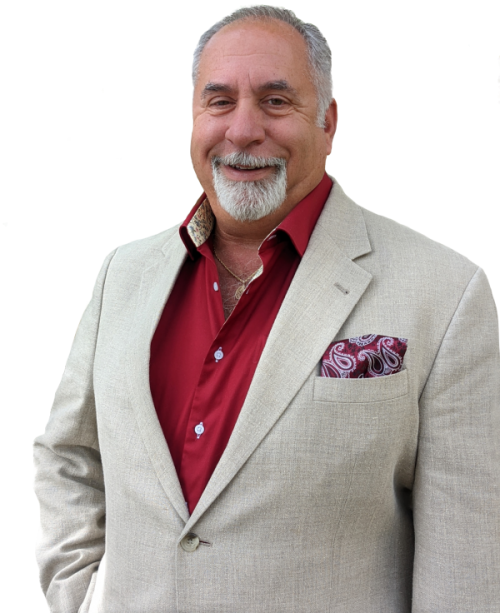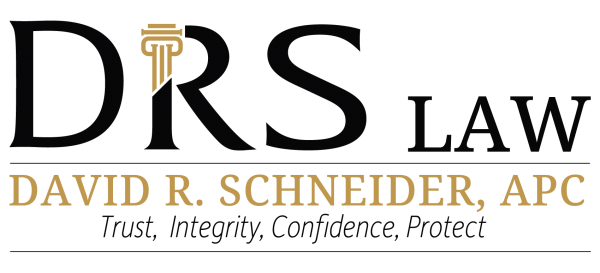FAQS About Revocable Living Trusts
Do I lose control over my property?
A. No, your property is still your property to use and enjoy. You still retain full control over your property, you may use the equity in your property, continue to take the tax write-off from the interest on your mortgage, or exchange one piece of property for another. Everything you could do before you had the Trust, you can do after you have the Trust in place.
How does a Trust avoid probate?
A. Probate occurs when three things are present (all three must be present) a) a person must die; b) when that person dies, they must own property in their own name; and c) that property must have a greater gross value than $61,500 in real property or $184,500 in personal property. When we use the Revocable Living Trust, the Trust actually owns the property. When the Trust owns the property, you do not. It is physically impossible to have a probate proceeding without a probate estate. When ownership is taken out of the equation, there cannot be a probate proceeding.
Does a Will avoid probate?
A. No, a Will is a probate guarantee. Because probate proceedings occur when a person 1) dies; 2) owns property; and 3) that property meets a minimum value, the Will seeks to ensure that these criteria are met. A Will can only work when someone dies; a Will can only control property owned by the decedent, and if the minimal values are met (and frankly it is hard not to meet those values in this county) the Will demands a probate proceeding to transfer the property to the beneficiaries. The best way to think of a Will is to think of it like an instruction sheet – a Will does not own property.
Is it difficult to operate a Trust?
A. No. Once the Trust is set up and the property is re-titled in the name of the Trust, it is business as usual. Utilizing a Revocable Trust (also referred to as a Living Trust) is a two-step process; step one is to create the Trust, and step two is to fund the trust by re-titling your assets in the name of the trust. Funding the trust is the most important aspect of the operation of the Trust. After this, you continue to use or enjoy the property as you normally would.
When do I need to create my Estate Plan?
A. Many people think this is necessary when they are or approaching retirement, but sadly this is not correct. The correct answer is that when you become an adult; when you own your own home or other significant property; when you have a family – these are all times when the Estate Plan and Revocable Living Trust are needed. There is no mandate that people only die after they retire or after they reach a certain age. In other words, you should create your Revocable Trust Estate Plan as soon as possible.
What happens if I become incapacitated?
A. Many people seem to be very confused by the discussion of who will become their decision-maker when they can no longer make decisions on their own – whether for medical needs or for financial needs. Once a person has lost their mental capacity, they are prevented from doing a great many things – including exercising a Durable Power of Attorney or Advance Healthcare Directive. We are constantly called by children whose parent is now incapacitated asking us to prepare the power of attorney documents, but it is now too late to create these documents. The Power of Attorney can only be signed before the person becomes incapacitated. Once they have lost their capacity to act, it is too late. Now the family must look to a costly and burdensome conservatorship proceeding to get the authority and power to act on behalf of their loved one. All of this can be avoided by just planning ahead.
Do I have to put all of my property into the Trust?
A. We recommend that all property that can go into the Trust should go into the Trust. We often get the call or are given the statement that the client has a small checking account that they do not want to “bother” to put into the Trust. There is simply no reason to leave property outside of the Trust, especially bank accounts. The disadvantage to leaving it outside the Trust is that depending on circumstances it can be very difficult to deal with the bank after the death of the account holder, as well as having money outside the Trust and outside the flow of distribution set up by the Trust.
Do I need to transfer my car or motor home into the Trust?
A. No. So long as the client has ordinary cars which do not exceed a value of $184,500, they do not need to be titled in the name of the Trust. The complete Estate Plan utilizes a document called a pour-over Will which disposes small value property directly back to the Trust. If you are fortunate enough to own Ferraris, very large motor homes, or other exotic vehicles or boats, then they do have to be titled in the name of the Trust.
How long does it take to set up a Revocable Living Trust Estate Plan?
A. This answer depends entirely on the circumstances and schedule of both the client and the attorney. Generally speaking, we prefer to work over the course of several weeks allowing for the client to think through the process, be comfortable in their decision making and just let the information sink in. We are sometimes present in “hurry up” situations due to travel plans, etc. and we try to meet those goals. Unfortunately, we are called upon from time to time to create an Estate Plan under emergency conditions, even executing these plans at a home or hospital with a mobile public notary. We can fit most schedules as the circumstances dictate.
Do IRAs and 401k’s go into the Revocable Trust?
A. No. Tax-deferred assets must remain outside the Trust estate. This is due to IRS regulations regarding tax-deferred – tax-qualified – assets. Instead, we prepare for the client a Durable Power of Attorney for Asset Management to deal with the asset during the client’s life should they become incapacitated, and then further advise the client on beneficiary designations for the asset for when they pass. These assets will not pass through probate when the client passes away.
When should I give my children/grandchildren their inheritance?
A. The answer to this question is entirely dependent on the ages and maturity level of the children. 18 makes an adult in California, and yet most 18-year-old children are far from mature. To leave an 18-year-old $500,000 is to simply send them to the Ferrari dealer. We can tailor estate plans to deal with the varying level of maturity of children/grandchildren by holding the money in a Trust for them; perhaps giving them some along the way e.g., 5% of their Trust share when they turn 21; 15% of their Trust share when they graduate from a 4-year college or university; 25% when they turn 27; balance when they are 30.
Can I leave money directly to my grandchildren?
A. Yes. Depending on how much one wants to leave, we can tailor a plan to make sure the money is available at a certain age, it can just be a gift to use as the grandchild sees fit, or it can be set aside as a college fund. We can make the gift anything the client wants it to be.
Can the Trust save on Estate Taxes?
A. US citizens and green card holders in this country have a Lifetime Exemption – an amount of property which can be given during life or at death without any federal estate tax (inheritance tax, death tax); presently the exemption amount is 12.6 million dollars. For a majority of people, their estate will not be large enough to create a Federal Estate Burden. For individuals who have estates larger than the present exemption (and married couples having estates larger than 25.2 million) we will work with planning professionals to protect the estate to preserve the wealth while reducing the tax burden.
What do I do if I have a child with special needs or is on state assistance?
A. Families who have experienced working with the State can speak firsthand about the difficulties and traps of not knowing your rights and completing the proper forms. In many state-assisted programs, the beneficiary (the child with special needs) only qualifies based on their wealth – children generally must be at the poverty level to qualify for the benefits. Should a family leave their estate to their children, one of whom has been on state assistance, that child can become disqualified from state assistance due to their inheritance. To avoid such a loss, we can design a “Special Needs Trust” within the body of the parent’s Revocable Living Trust” which ensures there is money available for some care needs of the special needs child, while not giving them ownership of the funds and preserving their benefits.
Do I have to redo my Trust if I move to another state?
A. No. The plan we create for you may travel with you through all fifty states. You do not have to make any changes to the Trust just because you have moved out of California.
Can I put real property or timeshares from another state into my California Trust?
A. Yes. We have helped clients transfer real property to their Trust in more than half of the states so far, working with hundreds of different counties and parishes.
How do I get started – do I need a lot of paperwork and account numbers?
A. All you need to get started is to give our office a call and ask us for a free, no-obligation consultation and we will do all the rest. You are invited to meet with the attorney, ask all the questions you like and make the decision for yourself whether you wish to move forward. We are very confident you will like our relaxed atmosphere and the manner in which we can break down complex planning subjects into simple to understand English – not legalese. Meetings are both virtual and live.
Do I need a lot of paperwork and account numbers?
A. Generally not – we work together to identify the important information. We prefer to not include account numbers or the specific names of financial institutions in the body of the Trust, as this information changes from time to time, especially in light of bank closures and mergers. We will take the time to go over with you exactly how the Trust interacts with bank and brokerage accounts.
Many times the client has the asset but does not generally understand the asset and just wants some unbiased help in understanding it – share it with us and let us walk you through it, we sell no financial products and receive no endorsements or kick-backs from any recommendation we might offer.
On a rare occurrence where the client wishes to have a specific account pass to a person(s) or charity – at this time we need to know what the account is and the number.

Integrity and Expertise at the Core of Our Legal Services
With decades of professional expertise, David R. Schneider, APC blends deep community ties with a wealth of experience. From running a successful business to excelling in the legal field with top grades and honors, David’s extensive knowledge ensures comprehensive and trusted legal support. His lifelong commitment to the Conejo Valley and its residents is your assurance of reliable and heartfelt service. Choose a legacy of excellence for your legal needs.

